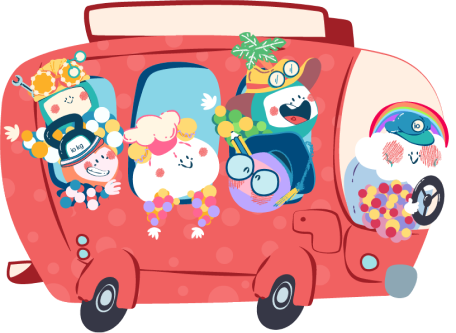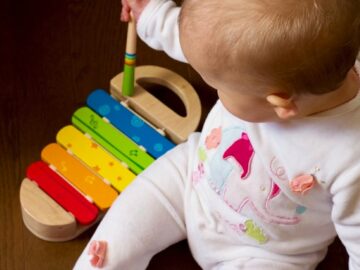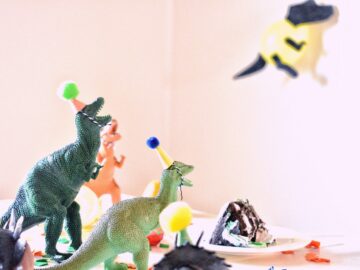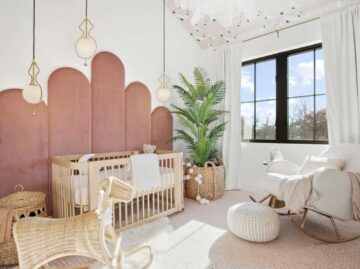The transition between your baby’s first to the second year of age is marked by huge developments in several aspects of your child’s growth—physical, emotional, and social.
You can continue to nurture his development by providing him with fun and learning activities that perfectly cater to two-year-olds. And we have what you need right here:
Developing Skills of Your Two-Year-Olds
By his second birthday, your child’s motor skills, coordination, speech, and intellect are developing at an impressive pace. You’re going to see your child start climbing, running, and jumping all over the place. You’re going to start seeing him answer you with almost complete sentences.
More importantly, he’s going to start asking you questions, and he’s going to demand answers from you. Encourage all these developments further by providing him with a safe but stimulating environment. Most of all, be there to witness all of these with him.
Important Milestones for Two-Year-Olds
Courtesy of Baby Centre
By the time he turns two, your child would already be able to:
- Walk by himself (without assistance)
- Run even if in short bursts only
- Stand on tiptoe
- Climb up and down a few steps (stairs) or up and down the couch
- Scribble random shapes
- Stack blocks up to several layers
- Talk in sentences (made of few words)
- Imitate the behavior of people he sees
- Begin make-believe plays
Games for Two-Year-Olds
Games are a good way to keep your 2-year-olds entertained while making them learn at the same time. Here are a few good examples of educational and fun games you can try with your 2-year olds:
- Simon says
- Hide-and-seek toys
- Stop and go (red light, green light)
- Hot and cold
- Puzzle games
Exploring Things with 2-Year-Olds
Courtesy of TheBump
Your 2-year-old is naturally getting more and more inquisitive about everything around him. This is why he likes to explore and try out stuff (with or without your permission). Take advantage of this opportunity to give him new experiences by exploring things with him:
- Visit new places when possible—a beach, a swimming pool, a hiking trail, a playground, or even a petting zoo. Let him feel the grass, the water, the animals, and everything else that these new environments offer.
- Eat out with him so your child can taste different types of food and get different dining experiences.
- Go to a museum, an aquarium, a cinema, or even a fire station. These places foster your child’s sense of wonder and amazement.
- Do science experiments with him to ignite his love of discoveries.
Sensory Learning Activities for 2-Year-Olds
As part of his brain development, your 2-year-old soaks up information like a sponge. Feed him as much information as he can take through sensory activities like:
- Sensory bins:
- Black bean construction site
- Water beads
- Toy animals in jello
- Shaving cream / whipped cream
- Kinetic sand/dough sculpting
- Rock or pebble box
Physical Activities for 2-Year-Olds
Courtesy of Kidspot NZ
You don’t need much help or direction with physical activities for your 2-year-old. They just naturally love moving around. Just make sure you give them a safe space where they can run, jump, climb, and even fall.
You can also try establishing a bit of control by giving your little one a ball or a rubber frisbee.
Craft & Art Activities for 2-Year-Olds
You can also help their development through art and craft activities. Art and crafts are excellent activities for drawing out your child’s creativity and imagination while improving dexterity and coordination. Try the following art and craft activities for your little one.
- Stamping colored designs using cut-out plant parts, including fruits leaves and stems.
- Putting together paper cutouts of facial features to create a face collage
- Finger painting (on paper, glass window, table, or other surfaces)
Outdoor Learning Activities for 2-Year-Olds
Courtesy of Child Insider
Your child’s learning should not be limited to when he’s inside the house. He can continue learning a lot of things outside the house through these outdoor learning activities:
- Sidewalk painting (using colored chalk)
- Sandcastle building
- Making and chasing bubbles
- Running and chasing (simple game of tag)
- Running obstacle courses
Frequently Asked Questions on Fun & Learning Activities for 2-Year-Olds
Where can I go with my 2-year-old?
You can go almost anywhere with your two-year-old. However, if you want to teach your child a few more things while you’re out of the house, then the following places might just be a good idea:
- Petting zoos
- Indoor playgrounds
- Museums
- Fire stations
- Beach
- Swimming pools
- Library
- Forests or botanical garden
What activities can you do with a 2-year-old?
Because of their more developed gross and fine motor skills, and a greater sense of awareness of their surroundings, your 2-year-old can now enjoy the following activities:
- Throwing and catching a ball
- Puzzle games
- Visits (museums, fire stations, library, gardens, market)
- Wading or swimming (with floaters)
- Petting animals
How do I entertain my 2-year-old all day?
Entertaining a 2-year-old for a whole day is very challenging. For one, they constantly require stimulation–-something to explore, focus on, solve, and interact with. Second, they easily lose focus, and, almost as easily, engage in a different activity without even batting an eyelash. Third, they do not easily get tired.
In short, it’s almost impossible. At least that’s how it would seem to a first-time parent. For the more experienced parents, however, the best way to entertain a 2-year-old is to prepare a very long list of activities for him to engage in.
Alternate physical activities with mentally-challenging ones to help him develop both physically and mentally. Then, just wait patiently and hope he gets tired first before you run out of activities.
How many words should a 2-year-old say?
By the time they turn 2, children should be able to say around 200 to 1000 words. They are also expected to string 2 to 3 words to form a sentence.
How much playtime should a 2-year-old have?
According to childcare experts, 2-year-olds should be given a minimum of 60 minutes of unstructured playtime and 30 minutes of structured or adult-led playtime. They should also not stay inactive for more than an hour except when they are sleeping.
What should I be teaching my 2-year-old?
With a wider vocabulary, more developed motor skills, and a greater sense of awareness of his surroundings, your child should be able to learn a lot more stuff if you teach him. So, take the time to teach your little one:
- More words to increase his vocabulary
- Be more independent by letting him learn how to
- Dress himself up or change clothes
- Use the spoon and fork to eat
- Wash his hands with soap and water
- Brush his teeth and comb his hair
- Go up and down the stairs
- Numbers and how to count
- Potty training
- Safety lessons on crossing the street, talking to strangers, consent
- Good manners







